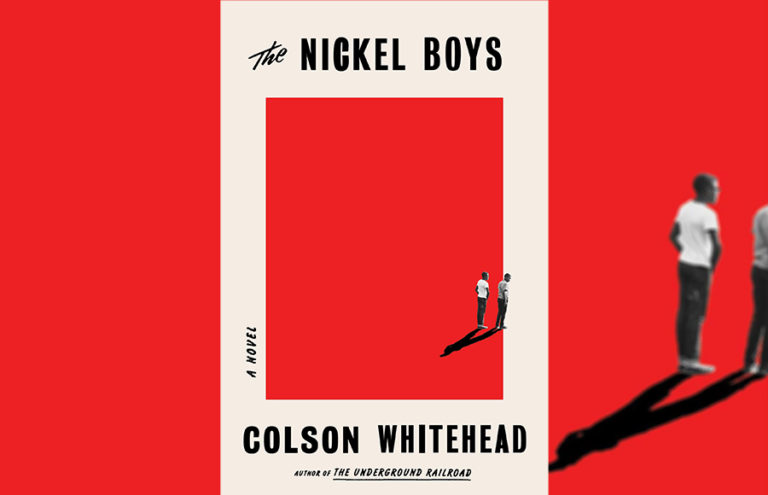Review of The Nickel Boys
Double Day. 2019. 213 pages.
Oftentimes an author writes about connection—to other characters, the narrative, the setting—but sometimes an author expects a connection from the reader. The Nickel Boys by Colson Whitehead writes about all three connections, and expects the latter. While a fictional narrative with non-fiction dabbled in, The Nickel Boys is a connection; a fictional account that feels all too real due to the subject matter, the raw emotions, and the outcome. It’s a story about a young black American, Elwood, taking the words of Martin Luther King to heart. It is a book about love, connection, confused animosity, and civil rights. While civil rights is the connotative tone of the novel—and a wholly important one— antipathy is important to see the outlying effects of the novel making it that much more potent. The narrative is driven by an honest mistake, but make no mistake, Whitehead’s writing is no accident. He captures the sentiment of the civil rights era unparalleled in any tangible method. The book holds a strong association with the writer’s own experiences, and the experiences of a fictional character driven in a search for equality.
Whitehead uses Elwood as the focal point to communicate inequality, and to communicate what the south was like. The Nickel Academy, a looming shadow overhanging the story, while not entirely real, is based on another school, on other facts. Whitehead borrows from reality to create a devastatingly honest story that reflects a disgusting part of history (or our present). Driven by a need to express himself in terms of even-handedness, Whitehead sprinkles the dialogue with actual fragments of MLK speeches to further his message. The reader is expected to understand the message, and retain it in the back of their minds throughout the reading. Once again, he tells a story that demands connection.
With the seemingly linear plot structure, Whitehead dips in and out of the present to drive the plot. With quick flashbacks and side notes, the character Elwood can be seen as a caring, sentient, and narrative based character. Whitehead uses the ability to fly between timelines in a fluid and marked way to push the idea of generational trauma into the forefronts of the novel. He asks readers to connect with the characters, and then strips our trust away at the end to enable a better understanding of the horrors these characters experienced. Whitehead purposely shatters us. The narrative, a slow burn of inequality, lets Whitehead grip the readers’ hand to reveal the horrific consequences of Jim Crow and painful, evil policies.
While not entirely clear whether Whitehead wants people to feel disheartened, or if he just wants readers to see the strength in connection, The Nickel Boys is a carefully built and constructed novel. He uses the book’s foundations to explore the dirty parts of American history by employing the well of generational trauma. Whitehead is better suited to control the narrative his way, unlike Elwood, who is living as if he’s trying to make sense of his lack of control. What is clear and transparent is Whitehead wants to show us the connection; it is ultimately tragic, with a glimmer of urgent and necessary hope.

